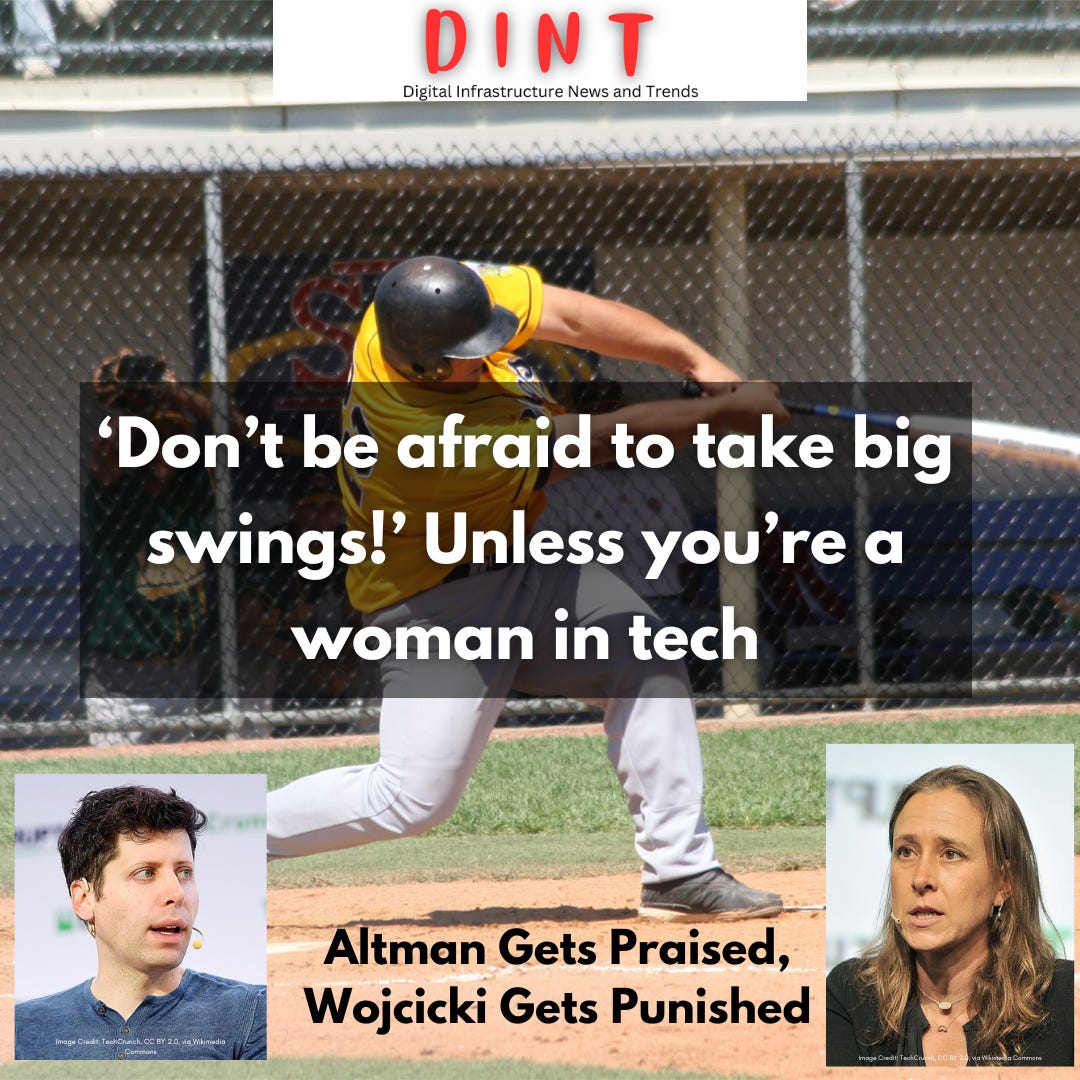DINT 124 - One tech CEO gets praised, another gets abandoned. The difference? Gender
Who comes out on top when a CEO makes a tough decision? In the case of Sam Altman and Susan Wojcicki, the male CEO gets support and the female CEO gets abandoned by her entire board of directors.
Last week, Susan Wojcicki’s entire board of directors resigned as she announced her plans to take biotech company 23andMe private. Three days later the board bo…



